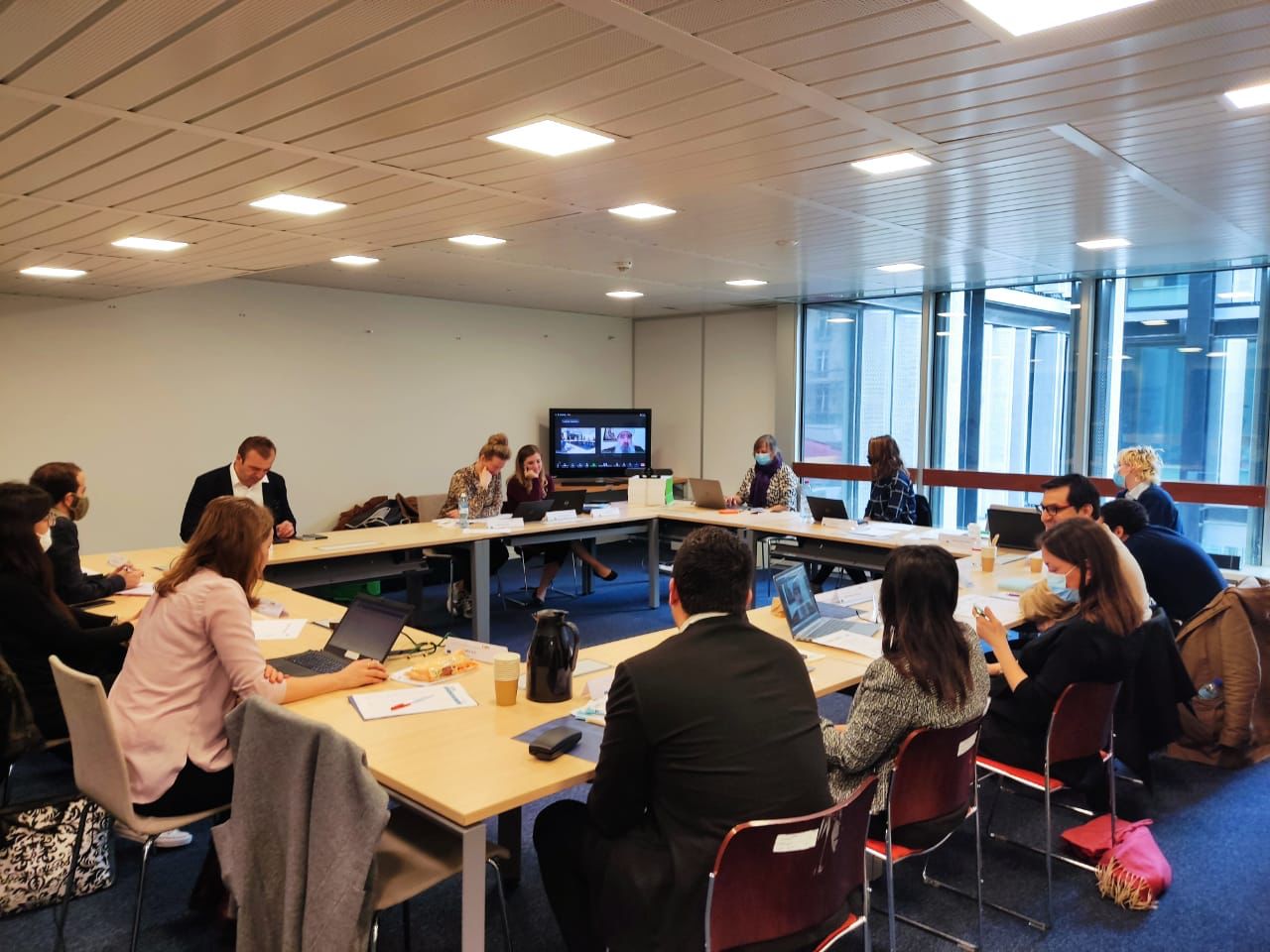Validation workshop on training needs
Over 45 PAVE partners gathered in Paris for a validation workshop on training needs
On February 24, 2022, over 45 PAVE partners and key stakeholders, including policymakers, faith actors, and civil society from the MENA and Western Balkans region gathered in a hybrid format in Paris to validate key findings as part of a capacity-building needs assessment. Based on feedback and recommendations provided from the validation workshop and the capacity-building needs assessment findings, a set of training modules and tools will be further developed during 2022. These materials and trainings will be piloted and published for open-source use by January 2023 to serve these three stakeholder groups beyond the lifespan of the PAVE project.
Throughout 2021, The Network for Religious and Traditional Peacemakers at Finn Church Aid (FCA) conducted participatory consultations with policymakers, faith actors and civil society in the MENA and Balkans region to understand the capacity-building needs and to identify key themes of interest related to preventing violent extremism (PVE) with the purpose of developing capacity-building tools and training modules. The assessment builds on the initial PAVE partners’ field research findings that identify vulnerability and resilience factors which either hinder or advance multi-stakeholders’ response to preventing violent extremism in the Western Balkans and MENA regions in order to offer recommendations to improve this coordinated response. Similarly, the assessment identifies some best practices and existing tools to advance resilience against violent extremism in all its forms or to prevent violent extremism in thematic focus areas and region highlighted by stakeholders and previous projects.

Validation workshop participants affirmed the proposal to develop 5-8 training modules focused on themes relevant for the prevention of violent extremism in the MENA and Western Balkans regions. Trainings will include topics surrounding (1) the interface between religious, political, and ethnic/sectarian extremisms; (2) interactions between religious and state institutions; (3) on- and offline narratives and (de-)radicalisation; and (4) transnational interactions, including impact on and from Europe. Each module will target the engagement of policymakers, religious actors and civil society, including women and youth, and can be adapted to meet the demands of local contexts.